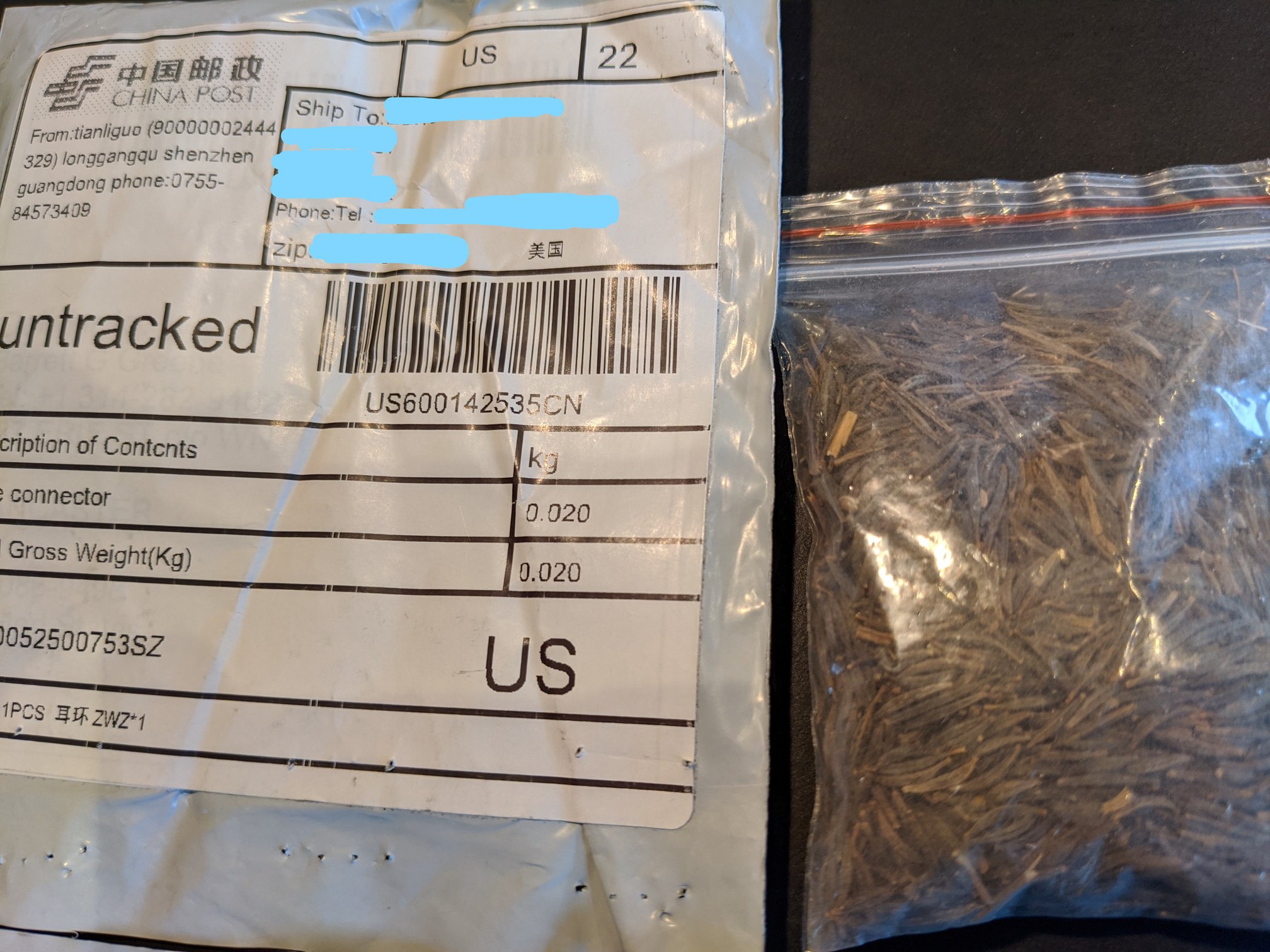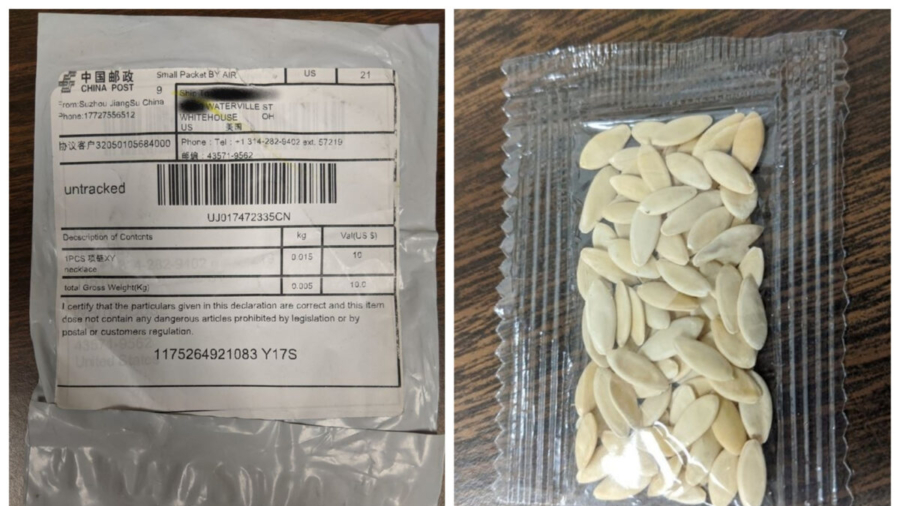An investigation into mysterious Chinese seed packages sent to thousands of U.S. households has identified them as 14 varieties of herbs, fruits, ornamental flowers, vegetables, and weeds, the U.S. Department of Agriculture (USDA) stated.
The known species include morning glory, cabbage, mustard, mint, sage, rosemary, lavender, hibiscus, and rose, although deputy administrator of the USDA’s Animal and Plant Health Inspection Service Osama El-Lissy noted this “is just a subset of the samples we’ve collected so far.”
All 50 states issued warnings to residents about unsolicited packages of unknown seeds last week, as residents across the country reported receiving seeds in mail packages that often indicate jewelry or toys inside—none of which they ordered.
The USDA confirmed that seed packages were reported in at least 22 states, while other countries, including Canada, Australia, European Union member states, and Taiwan, have also reported similar occurrences in recent weeks.
The packages are mostly handled through China Post, the Chinese regime’s official postal delivery service, and the USDA stated that recipients seemed to be those who recently made purchases online.
While some have wondered if this is an act of agro-terrorism, the agency, which is still collecting and testing “as many seeds as possible,” has found no evidence suggesting this is anything other than a “brushing scam.” The marketing scheme refers to sellers sending unsolicited items to a residential address to qualify them as a “verified buyer,” then posing as customers to post false positive reviews and boost sales.
Officials have warned that seeds that come in the mail may carry invasive pests and diseases, and online purchases of plant products could also be illegal without proper paperwork.

Julie, a resident from Queens, New York, said she has received five packages with unknown seeds in recent weeks.
During the city’s quarantine, she ordered some seeds from U.S. sellers on Amazon. But the packages, which came through China Post, took several months to arrive, and contained misleading labels in Chinese that marked the items as rings, ear studs, and necklaces.
Surprised to find no planting instructions inside, and wary about potential health risks, she sealed the packages in a large plastic bag and threw them away.
“I was really afraid it’d have the virus,” she told The Epoch Times.
When she again received a package with earring descriptions, she placed it in a plastic bag straight away without opening it and hurriedly washed her hands.
Amazon didn’t immediately return a request for comment.
The USDA advised anyone who receives the seeds to save them along with the packaging and mailing label, and to avoid opening the packets or planting the seeds. For those who have planted the seeds, they should remove the seeds or plants, along with at least three inches of the surrounding soil, then place all of it into double-layered plastic bags before disposing of it in a municipal trash bin.
Taiwan authorities said they have collected at least nine gardening-related items sent from China, including fertilizers, sandy soil, and seeds such as fishpole bamboo and lotus.
From The Epoch Times

